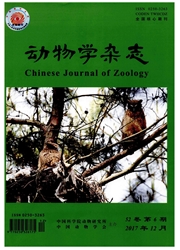

 中文摘要:
中文摘要:
血管生成抑制素(angiostatin)是纤溶酶原(plasminogen)在体内的天然水解产物,能够有效抑制血管内皮细胞的增殖、迁移和管状结构的形成而参与对血管生成过程(angiogenesis)的调节.血管生成是指从已经存在的血管生长出新的分枝血管的过程.该过程在成体组织并不活跃,然而在某些病理条件下如伤口愈合、炎症、肿瘤的生长和恶性转移时却常常伴随活跃的血管生成过程.血管生成抑制素对血管生成的抑制作用,提示其作为一种特异性的针对血管内皮细胞的药物治疗与血管生成有关的一些疾病,如肿瘤的可能性.本文主要介绍近年来关于Angiostatin作用机理的研究进展以及其作为治疗药物的应用前景.
 英文摘要:
英文摘要:
Angiostatin, a 38 ku derivate of plasminogen, has been identified and characterized to be a potent inhibitor of angiogenesis and tumor metastasis. Angiogenesis referred to sprouting and branching of new vessels from the preexisting ones. Although it is rare in adult, angiogenesis is a key event in a broad range of pathological events, such as wound healing, inflammation, tumor growth and metastasis. The purpose of this review is to describe the highlights of research on the mechanism of Angiostatin action and its application as an anti-angiogenic factor for curing some diseases such as tumor.
 同期刊论文项目
同期刊论文项目
 同项目期刊论文
同项目期刊论文
 期刊信息
期刊信息
